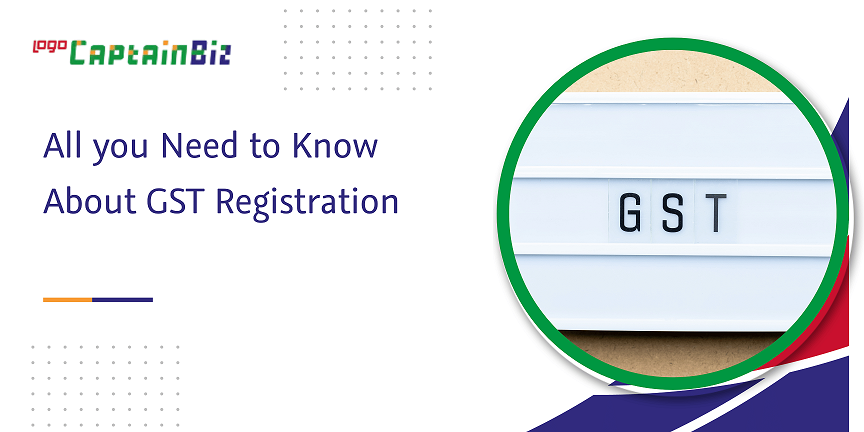Throughout: The Ultimate Roadmap to GST Registration for Companies Looking For Financial Security
Navigating the complexities of Goods and Services Tax Obligation (GST) registration is a vital action for services striving for economic security. Breaking down the roadmap right into manageable steps can improve the enrollment trip for businesses looking to enhance their monetary standing.
Recognizing GST Basics
Looking into the fundamental principles of Goods and Solutions Tax Obligation (GST) is crucial for gaining a comprehensive understanding of its ramifications on companies and the economy. GST is a value-added tax imposed on many items and solutions for residential consumption. It has replaced numerous indirect tax obligations that existed in the pre-GST period, simplifying the tax framework and boosting convenience of doing business in India. Under the GST system, both services and products are taxed at a details rate, which is identified based upon their classification. If their yearly turnover goes beyond the threshold limitation established by the federal government, businesses are needed to sign up for GST. Input Tax Credit Rating (ITC) is a substantial attribute of GST, enabling companies to claim credit for tax obligations paid on inputs, decreasing the overall tax obligation worry. Understanding the essentials of GST is essential for organizations to abide by tax obligation regulations, handle their financial resources successfully, and contribute to the nation's economic growth by getting involved in a clear tax obligation system.
Qualification Requirements for Registration
As of the current guidelines, the threshold limitation for GST enrollment is a yearly accumulation turnover of 40 lakhs for businesses operating within a state, other than for special group states where the limitation is 20 lakhs. Additionally, specific companies are called for to register for GST irrespective of their turn over, such as interstate distributors, laid-back taxable individuals, and companies accountable to pay tax under the reverse cost device. It is vital for organizations to extensively evaluate their turn over and purchase kinds to establish their GST enrollment responsibilities properly.
Records Needed for Enrollment
Having met the qualification standards for GST enrollment, services should currently ensure they have the requisite records in location to continue with the registration procedure effectively. The files needed for GST enrollment typically consist of evidence of company constitution, such as collaboration act, enrollment certificate, or consolidation certificate for different kinds of businesses. Additionally, organizations need to offer records developing the major location of organization, such as a rental agreement or power bill.
Step-by-Step Enrollment Refine
Beginning the GST registration procedure entails a series of structured actions to make sure a compliant and seamless registration for companies. The primary step is to see the GST portal and complete the registration kind with accurate details of the organization entity. Following this, the candidate obtains a Short-term Recommendation Number (TRN) which is used to return check my reference to the application process if it's not completed in one go.
Next, all called for files according to the checklist supplied by the GST portal demand to be published. These records typically include proof of company enrollment, identification and address proofs of promoters, economic declarations, and service entity's frying pan card.

Post-Registration Conformity Guidelines

Final Thought
To conclude, organizations looking for economic stability must understand the essentials of GST, meet eligibility standards, collect necessary files, follow the detailed enrollment process, and comply with post-registration guidelines - Best GST registration services in Singapore. By sticking to these steps, companies can guarantee conformity with tax obligation policies and preserve monetary stability in the future
In addition, certain businesses are required to register for GST regardless of their turn over, such as interstate providers, laid-back taxed individuals, and services liable to pay tax obligation under the reverse charge mechanism.Having actually fulfilled the qualification criteria for GST registration, services have to currently guarantee they have the requisite files in area to proceed with the registration process effectively. The documents required for GST enrollment commonly include evidence of organization constitution, such as collaboration act, enrollment certificate, or consolidation certification for various types of organizations. Furthermore, content organizations require to give documents developing the principal location of business, such as a rental contract or electrical power costs.Commencing the GST registration process entails a collection of organized steps to make certain a seamless and certified registration for services.